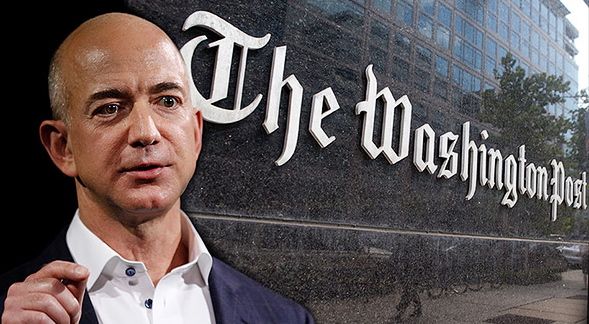
A new life for newspapers?

How you greeted the news that the Graham family had sold the legendary Washington Post probably depended on the first thing you do every morning, after you brush your teeth. If you turn on your computer and click to the day’s news, you didn’t even think about it. If you stumble to the front door and pick up the morning paper, you felt sad.
But if you fall into that latter category, and most of us of a certain age do, get over it. You belong to a generation that reveres print journalism and lives to hold the daily newspaper in your hand: an age that’s disappearing fast, and never coming back.
Of course, the Washington Post is more than a newspaper. It’s a national treasure, and a real powerhouse. It brought down a president. It made the big screen. Its editors and reporters inspired generations of young men and women to enter journalism. For a while, it even made money. But then, like almost every other major metropolitan daily, it started to bleed. The Washington Post company reported losing $49 million in its newspaper operations for the first half of 2013 – on top of a reported $53.7 million loss in 2012; a $21.2 million loss in 2011; a $9.8 million loss in 2010; and a $163.5 million loss in 2009. Over the last six years, newspaper revenue for the company fell by 44 percent.
So, the Post was clearly in trouble. And now it’s gone? No, that’s where all the hand-wringers and old-timers are wrong. The Washington Post is not gone. It will continue publication in print and online, only now in the hands of a new owner, Jeff Bezos, who appears to be the perfect owner for this new, digital age.
Let’s face it. The days of daily print newspapers are disappearing fast. Circulation is down. The Washington Post fell from a peak of 832,332 in 1993 to 484,385 in 2012. Readership is down. Advertising is down. Revenues are down. The only way newspapers are picking up new readers today is online, or on video. In fact, according to Pew Research, starting as early as 2009, more people get news for free online than from a newspaper. And that’s why Jeff Bezos seems the perfect man to buy the Post.
As he’s already proven at Amazon, nobody’s more creative or successful in stretching and expanding the Internet in order to deliver a better product, better serve the public and make more money – or, as one expert described his secret to me, directing “customer movement on the web.” Bezos started in 1995 with the vision of building the world’s biggest book store, with greatest selection and fastest delivery. From there, he expanded Amazon.com into what it is today, the world’s largest online retailer: a combination Barnes-and-Noble, WalMart, Costco, CVS, Radio Shack and Macy’s where you can buy almost anything, even a great newspaper.
Bezos can obviously drive a hard bargain, too. He bought the mighty Post at the astonishingly low price of $250 million, half what Al Jazeera paid for low-rated Current TV. And less than the $295 million The New York Times paid in 1999 for the Worcester, Massachusetts Telegram and Gazette, circulation about 75,000.
While there’s no doubt about Bezos’ business skills, however, there are serious doubts about his politics. One benefit of the Post was in knowing that for 80 years it had been in the hands of the Graham family, known for their progressive politics and dedicated to good journalism, good government and going after scoundrels of either party. The politics of Jeff Bezos are not so clear-cut.
Bezos is progressive on some issues. Last year, he and his wife contributed $2.5 million to help pass a referendum to legalize same-sex marriage in Washington state. Amazon’s a big supporter of federal legislation requiring online retailers to pay state sales taxes. At the same time, he has supported efforts to privatize public education, thereby clashing with teachers’ unions and staffs Amazon’s warehouses with temporary workers getting low wages and no benefits. But at least, in the comment most heard around Washington this week, “he’s no Rupert Murdoch.” Nor the Koch Brothers.
Nobody knows what the daily newspaper will look like in five years. But Jeff Bezos will figure it out and take us there. The Washington Post was dying. Jeff Bezos will give it new life.
Bill Press is host of a nationally-syndicated radio show, the host of “Full Court Press” on Current TV and the author of a new book, “The Obama Hate Machine,” which is available in bookstores now. You can hear “The Bill Press Show” at his website: billpressshow.com. His email address is: bill@billpress.com.
(c) 2013 Tribune Content Agency, LLC.

